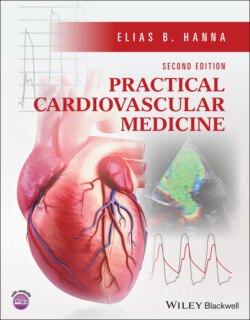Читать книгу Practical Cardiovascular Medicine - Elias B. Hanna - Страница 54
B. Clopidogrel resistance is seen in ~30% of patients
ОглавлениеClopidogrel resistance is defined as < 30% inhibition of ADP-induced platelet aggregation; or as an absolute platelet reactivity to ADP of < 208–230 platelet reactivity units (using a quick point-of-care assay, VerifyNow assay). Clopidogrel resistance is related to impaired clopidogrel activation and is at least partly genetic, determined by mutations of the cytochrome genes (particularly CYP2C19). Other factors, such as ACS presentation, obesity, and CKD may contribute.
Poor clopidogrel response is associated with an increased risk of coronary events and stent thrombosis. However, in hyporesponsive patients undergoing PCI for stable CAD, the tailored use of prasugrel or a higher clopidogrel maintenance (150 mg) did not translate into a clinical benefit (TRIGGER-PCI).163 In fact, stable CAD PCI is associated with a low risk of stent thrombosis and adverse outcomes even in poor clopidogrel responders, reducing the benefit of more potent antiplatelet strategies. Even in ACS PCI, where poor clopidogrel response is particularly predictive of poor outcomes, tailored therapy was not superior to indiscriminate clopidogrel therapy.164 TAILOR-PCI trial randomized PCI patients with ACS (~85% of patients) or stable CAD to clopidogrel or to escalating antiplatelet therapy based on genetic CYP2C19 testing (ticagrelor was given for mutation carriers, clopidogrel for non-carriers). Tailored therapy was not superior to clopidogrel, even among mutation carriers. Genetic testing may better serve to de-escalate from ticagrelor/prasugrel to clopidogrel in patients with good-function alleles (Popular genetics trial).
